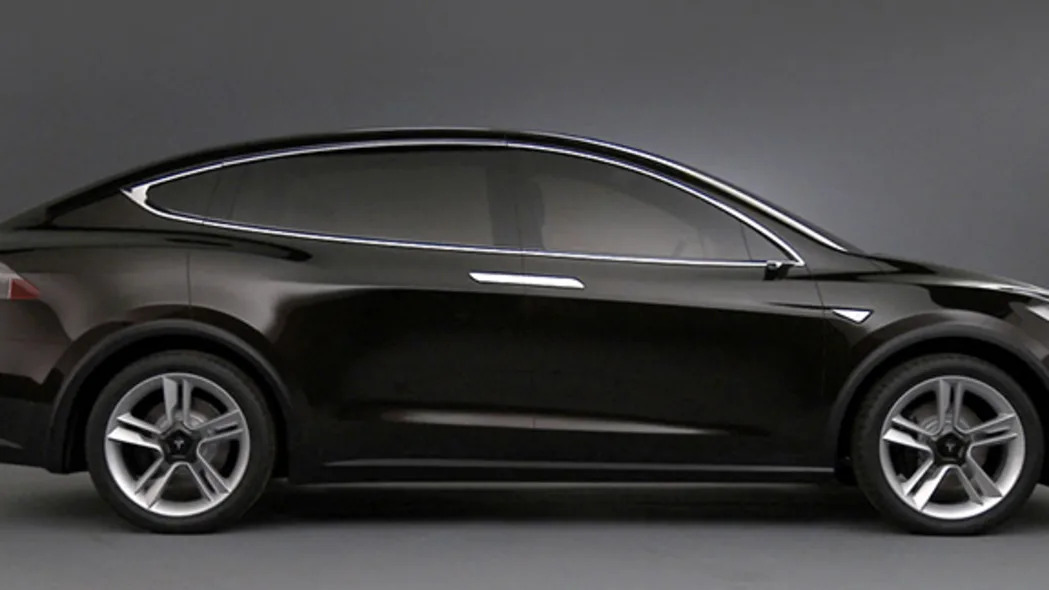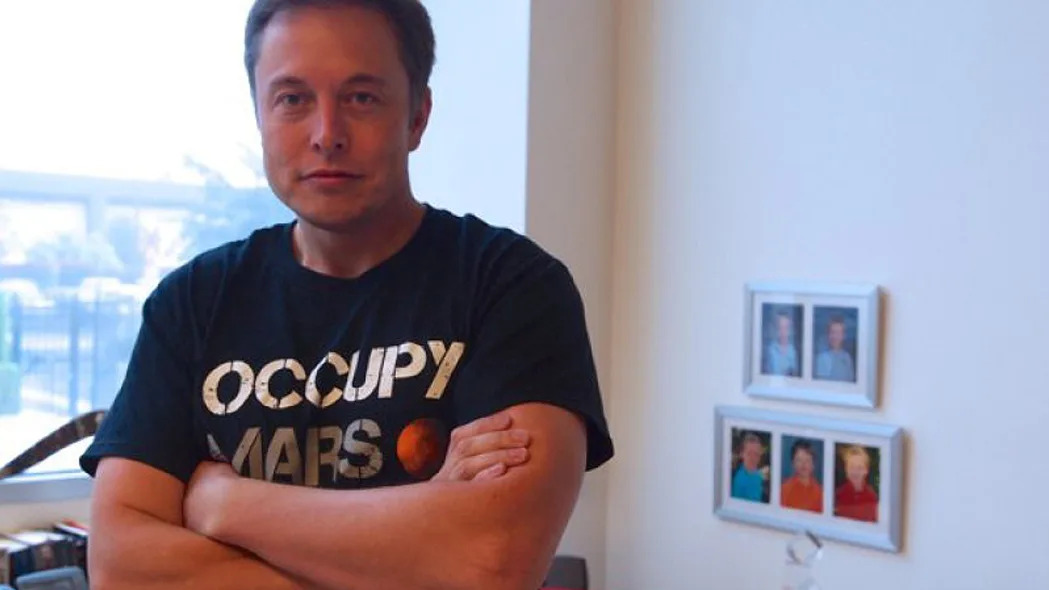Falling gas prices, production delays and weakened demand in a key market would send shudders through the CEOs of most automakers. None of those problems could dent the enthusiasm Tesla Motors CEO and co-founder Elon Musk has for a vision of an electric-car future.
In a rare appearance Tuesday on the home turf of the Big Three automakers in Detroit, Musk said those factors wouldn't hinder Tesla Motors' growth over the next five to ten years. In fact, he revised the company's sales projections upwards, even as he said Tesla may not turn a profit for five more years.
Previously, Musk had said he wanted the company to sell 500,000 vehicles by 2020. In more than an hour's worth of wide-ranging remarks at the Automotive News World Congress, he said, "I think we'll try to aim to do more cars than that. I think we'll continue past that. We probably should get to a few million cars by 2025. We could probably get to a few million cars per year."
Spate Of Recent Complications
Not that Tesla Motors' rise to prominence through a global economic recession hasn't already defied conventional wisdom, but the upward figures came despite recent complications that will only make that sort of sales climb more difficult.
Gas prices fell to a national average of $2.11 per gallon Tuesday, and many automakers fret this plunge will make the sale of electric vehicles far more difficult.
"I don't think it will affect the S or X," Musk said Tuesday.

Production of the Model X – an all-electric crossover that features gullwing doors that would give Tesla Motors an immediate entrant in the fastest-growing vehicle segment – has been delayed for two years while the Fremont, CA-based company focused its limited production capabilities on its Model S and worked on complications with the X.
"It's been two steps forward, one step back," Musk said. "Really, it was important to me that the doors were not just a gimmick, but a fundamental improvement to the functionality of the cars."
Another hurdle for Tesla: Musk said Tuesday that sales had weakened in China during the fourth quarter of 2014. Exact sales figures were not known because Tesla does not release them, but Musk said growth slowed because customers there had overestimated the difficulty in installing and maintaining charging equipment; he said the "miscommunication" had been corrected and that the company has already seen an uptick in sales.
Dealers Still Stymie Direct Sales
Those problems come on top of two more well-documented challenges for the company: Early this week, Chevrolet announced a new all-electric concept car, the Bolt, that could carry approximately 200 miles of range and sell at $30,000 after incentives. It would appear the car is a direct competitor for Tesla's upcoming Model 3, a sedan aimed at the mass market that would sell for roughly $35,000.
Musk was at once enthusiastic about the Bolt's arrival – he's been prodding automakers to embrace electric vehicles – and dismissive. He noted that Chevy's price point of $30,000 factored in a $7,500 federal tax credit available for green-friendly vehicles; he said the Model's 3's announced price point of $35,000 has not yet had the credit applied.
Tesla is still fighting automotive dealers, whose lobbyists have fervently worked state by state in recent years to reinforce or rewrite laws that effectively prevent Tesla from selling cars directly to customers.
On that end, Musk sounded conciliatory tones Tuesday, saying he'd be open to partnerships with dealerships or market through them in the future. He said he planned to visit officials in Texas on Wednesday to re-open the state to his cars.
"I think it's mostly about getting people comfortable and making sure there's a reasonable compromise here," he said. "In the case of Texas particularly, direct sales is fundamental to the Texas ethos. Michael Dell started Dell – in Texas. So the prohibition of direct sales is antithetical to what Texas is about. It's un-Texan."

Other Topics
Musk spoke at length Tuesday, first in front of an audience of auto industry insiders for about 45 minutes and then with reporters for another half hour. Here are a few more subjects he covered.
Previously, Musk has said he's no fan of hydrogen fuel cells as an alternate energy source for vehicles. He let loose Tuesday, criticizing them at length.
"I just think that they're extremely silly," he said. "They're very difficult to solve and extremely inefficient. ... It's terrible. Why would you do that? It makes no sense. You can't tell when it's leaking. It's extremely flammable. If you're going to choose an energy, it's a dumb one to pick."
After emphasizing that Tesla's sales were constricted only by the company's current capacity to build cars, he said he envisioned long-term plans that involved constructing assembly plants in Europe, Asia and the East Coast of the U.S.
Asked if there'd be a possibility such a factory could be located in Detroit, Musk got a good laugh when he deadpanned, "Maybe if they let me sell my cars here."
Musk said he aimed to stay in his role of CEO, at a minimum, through the production of the Model 3, and said he intended to stay with the company for life.
If there was a caveat to those remarks, he noted that if the gigafactory the company is building in Nevada cannot drive down battery costs, "I should definitely be fired."
In a rare appearance Tuesday on the home turf of the Big Three automakers in Detroit, Musk said those factors wouldn't hinder Tesla Motors' growth over the next five to ten years. In fact, he revised the company's sales projections upwards, even as he said Tesla may not turn a profit for five more years.
Previously, Musk had said he wanted the company to sell 500,000 vehicles by 2020. In more than an hour's worth of wide-ranging remarks at the Automotive News World Congress, he said, "I think we'll try to aim to do more cars than that. I think we'll continue past that. We probably should get to a few million cars by 2025. We could probably get to a few million cars per year."
Spate Of Recent Complications
Not that Tesla Motors' rise to prominence through a global economic recession hasn't already defied conventional wisdom, but the upward figures came despite recent complications that will only make that sort of sales climb more difficult.
Gas prices fell to a national average of $2.11 per gallon Tuesday, and many automakers fret this plunge will make the sale of electric vehicles far more difficult.
"I don't think it will affect the S or X," Musk said Tuesday.

Production of the Model X – an all-electric crossover that features gullwing doors that would give Tesla Motors an immediate entrant in the fastest-growing vehicle segment – has been delayed for two years while the Fremont, CA-based company focused its limited production capabilities on its Model S and worked on complications with the X.
"It's been two steps forward, one step back," Musk said. "Really, it was important to me that the doors were not just a gimmick, but a fundamental improvement to the functionality of the cars."
Another hurdle for Tesla: Musk said Tuesday that sales had weakened in China during the fourth quarter of 2014. Exact sales figures were not known because Tesla does not release them, but Musk said growth slowed because customers there had overestimated the difficulty in installing and maintaining charging equipment; he said the "miscommunication" had been corrected and that the company has already seen an uptick in sales.
Dealers Still Stymie Direct Sales
Those problems come on top of two more well-documented challenges for the company: Early this week, Chevrolet announced a new all-electric concept car, the Bolt, that could carry approximately 200 miles of range and sell at $30,000 after incentives. It would appear the car is a direct competitor for Tesla's upcoming Model 3, a sedan aimed at the mass market that would sell for roughly $35,000.
Musk was at once enthusiastic about the Bolt's arrival – he's been prodding automakers to embrace electric vehicles – and dismissive. He noted that Chevy's price point of $30,000 factored in a $7,500 federal tax credit available for green-friendly vehicles; he said the Model's 3's announced price point of $35,000 has not yet had the credit applied.
Tesla is still fighting automotive dealers, whose lobbyists have fervently worked state by state in recent years to reinforce or rewrite laws that effectively prevent Tesla from selling cars directly to customers.
On that end, Musk sounded conciliatory tones Tuesday, saying he'd be open to partnerships with dealerships or market through them in the future. He said he planned to visit officials in Texas on Wednesday to re-open the state to his cars.
"I think it's mostly about getting people comfortable and making sure there's a reasonable compromise here," he said. "In the case of Texas particularly, direct sales is fundamental to the Texas ethos. Michael Dell started Dell – in Texas. So the prohibition of direct sales is antithetical to what Texas is about. It's un-Texan."

Other Topics
Musk spoke at length Tuesday, first in front of an audience of auto industry insiders for about 45 minutes and then with reporters for another half hour. Here are a few more subjects he covered.
Previously, Musk has said he's no fan of hydrogen fuel cells as an alternate energy source for vehicles. He let loose Tuesday, criticizing them at length.
"I just think that they're extremely silly," he said. "They're very difficult to solve and extremely inefficient. ... It's terrible. Why would you do that? It makes no sense. You can't tell when it's leaking. It's extremely flammable. If you're going to choose an energy, it's a dumb one to pick."
After emphasizing that Tesla's sales were constricted only by the company's current capacity to build cars, he said he envisioned long-term plans that involved constructing assembly plants in Europe, Asia and the East Coast of the U.S.
Asked if there'd be a possibility such a factory could be located in Detroit, Musk got a good laugh when he deadpanned, "Maybe if they let me sell my cars here."
Musk said he aimed to stay in his role of CEO, at a minimum, through the production of the Model 3, and said he intended to stay with the company for life.
If there was a caveat to those remarks, he noted that if the gigafactory the company is building in Nevada cannot drive down battery costs, "I should definitely be fired."


Sign in to post
Please sign in to leave a comment.
Continue